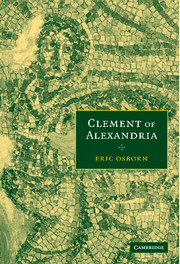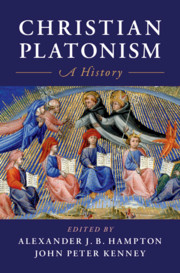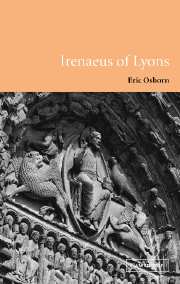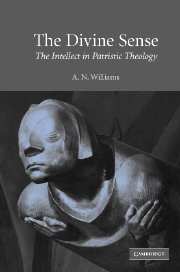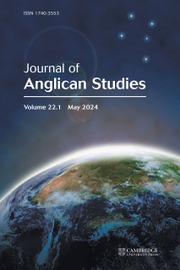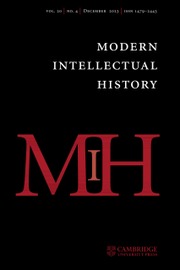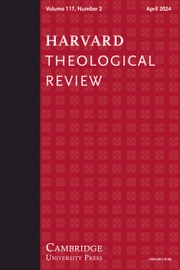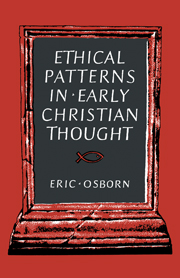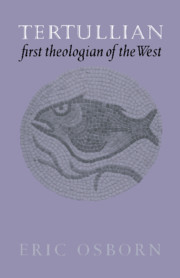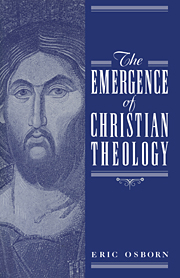Clement of Alexandria
$49.99 USD
- Author: Eric Osborn, La Trobe University, Victoria
- Date Published: February 2011
- availability: This ISBN is for an eBook version which is distributed on our behalf by a third party.
- format: Adobe eBook Reader
- isbn: 9780511889707
Find out more about Cambridge eBooks
$
49.99 USD
Adobe eBook Reader
Other available formats:
Paperback, Hardback
Looking for an inspection copy?
This title is not currently available on inspection
-
Clement of Alexandria (150–215) lived and taught in the most lively intellectual centre of his day. This book offers a comprehensive account of how he joined the ideas of the New Testament to those of Plato and other classical thinkers. Clement taught that God was active from the beginning to the end of human history and that a Christian life should move on from simple faith to knowledge and love. He argued that a sequence of three elliptical relations governed the universe: Father and Son, God and humanity, humans and their neighbours. Faith as a fixed conviction which is also a growing mustard seed was joined to Plato's unwavering search for the best reason. The open heaven of prophecy became intelligible through Plato's ascending dialectic. This book will be invaluable in making this outstanding thinker of the early Church accessible to the students of today.
Read more- Osborn charts Clement of Alexandria's fusion of New Testament ideas with Plato's classical thought
- An unmissable account of this crucial stage in the development of New Testament theology
- A thorough examination of Clement of Alexandria's development of Platonism
Reviews & endorsements
Review of the hardback: 'Professor Osborn addressed this subject in 1957 in his Philosophy of Clement of Alexandria. Now, almost 50 years later, he returns to it with this detailed and concise study. He (Osborn) has taken care to make it accessible: Greek terms are transliterated, and passages are translated. It will be enjoyed not only by those with a special interest in patristic theology, but by a wider readership. They will be introduced to an influential but underestimated pioneer of Christian theological thinking, and will be excited by the broad vision and perceptive insights of a highly creative thinker.' Church Times
See more reviewsReview of the hardback: 'Eric Osborn has written what will surely become the standard introduction to the thought of Clement of Alexandria. Osborn's treatment provides a detailed analysis and careful appreciation of the thought of Clement. It will not only serve as a standard text on this topic, but, moreover, opens up fresh ways of understanding this highly significant early Christian figure.' Expository Times
Review of the hardback: '… combines the fermented wisdom of fifty years with the exhileration of one who has rediscovered a friend of his youth … this is the most astute, the most impassioned and the most learned introduction to Clement's thought that has yet been offered to the English-speaking reader.' Journal of Ecclesiastical History
Review of the hardback: 'This book is indeed analytic … But the book is also synthetic. Osborn brings together Clement's often scattered statements on given themes and shows how these fit together to form a 'pilgrim theology'. A remarkable feature of the book is the notion, advanced more than once, that Clement's path-breaking 'fusion of faith with Plato's search for the best reason' … this rewarding book is demanding … Osborn provides helpful summary bibliography … a subject index, and indices of citations from Clement, the Bible, and ancient authors … This book deserves to be read widely, by patrologists, scholars of classical philosophy, historians of the early Church, theologians, and those working in relating fields. Students of Clement, in particular, will be grateful for Osborn's continued commitment to teach through writing.' Andrew Dinan, Ave Maria University
Review of the hardback: 'This book deserves to be read widely, by patrologists, scholars of classical philosophy, historians of the early Church, theologians, and those working in related fields. Students of Clement, in particular, will be grateful for Osborn's continued commitment to teach through writing.' Bryn Mawr Classical Review
Customer reviews
Not yet reviewed
Be the first to review
Review was not posted due to profanity
×Product details
- Date Published: February 2011
- format: Adobe eBook Reader
- isbn: 9780511889707
- availability: This ISBN is for an eBook version which is distributed on our behalf by a third party.
Table of Contents
Preface
1. Life and works
Part I. Economy and Mobility:
2. Divine plan/economy and mobility
3. Scripture
4. Philo and Clement: from divine oracle to true philosophy
Part II. Divine Reciprocity:
5. God beyond God and God within God: the known centre of the unknown God
6. God beside God: the ellipse
Part III. Faith and Salvation:
7. The spark and ferment of faith (exc 1.1.3)
8. Arguments for faith
9. Knowledge, sciences and philosophy
10. Church and heresy
11. Twofold hope
12. Love and reciprocity
Conclusion
Appendix.
Sorry, this resource is locked
Please register or sign in to request access. If you are having problems accessing these resources please email [email protected]
Register Sign in» Proceed
You are now leaving the Cambridge University Press website. Your eBook purchase and download will be completed by our partner www.ebooks.com. Please see the permission section of the www.ebooks.com catalogue page for details of the print & copy limits on our eBooks.
Continue ×Are you sure you want to delete your account?
This cannot be undone.
Thank you for your feedback which will help us improve our service.
If you requested a response, we will make sure to get back to you shortly.
×
